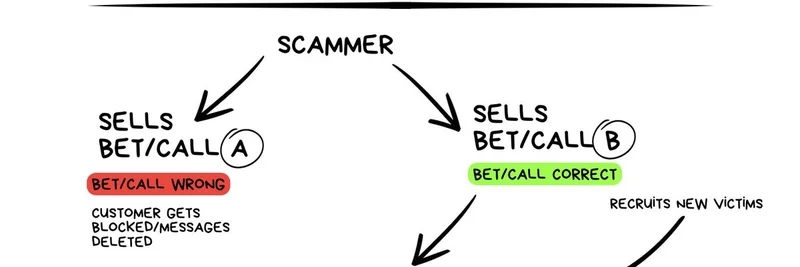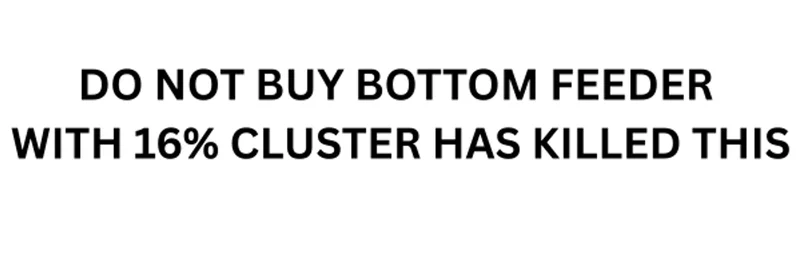In the fast-paced world of crypto, where meme tokens like those on Solana can skyrocket overnight, scams are unfortunately part of the game. Recently, a tweet from seasoned DeFi trader Fabiano Solana pulled back the curtain on a sneaky tactic called the "delta neutral scam." If you're dabbling in meme coins or following key opinion leaders (KOLs) for trading tips, this is a must-read to protect your wallet.
The Personal Story Behind the Warning
Fabiano Solana, who goes by @FabianoSolana on X, shared a raw anecdote from his youth. At just 15 years old, he fell victim to a sports betting scam involving "fixed games." The scammers boasted an impressive streak of high-odds wins, luring him in. He shelled out $500—his entire high school food budget for two months—for a single pick. Turns out, the scammers were selling opposite bets to different people. When his bet lost, they blocked him and vanished, leaving him high and dry.
Fast-forward to today, and Fabiano sees the same playbook in crypto. He claims he's been scammed over 100 times, but this early lesson stuck with him. In his tweet, he connects the dots to modern crypto frauds, especially around hyped tokens like Aster (ASTER).
Breaking Down the Delta Neutral Scam
So, what exactly is a delta neutral scam? In trading terms, "delta neutral" refers to a strategy where your overall position is balanced to minimize risk from small price movements—think hedging a long position with a short one to stay neutral. But in the scam context, it's twisted into something sinister.
As illustrated in the diagram from Fabiano's tweet, scammers sell conflicting "calls" or predictions to different victims. Here's how it plays out:
- The scammer sells Bet/Call A to one group (which turns out wrong).
- They sell the opposite Bet/Call B to another group (which happens to be correct).
- Victims who lose get blocked, and their messages deleted, erasing any evidence of failure.
- With a "clean record" from the winning side, the scammer recruits new victims and repeats the cycle.
In crypto, this often involves KOL groups—those influencers who hype meme tokens or DeFi plays. They might edit their profit and loss (PnL) screenshots to show massive gains or open delta neutral positions that guarantee a "win" on one side. Fabiano points out that with the recent Aster token hype, where the price jumped over 7,000% in days, suddenly everyone's flashing six-figure PnLs. But according to him, most are fake, designed to lure in more suckers.
Aster, a Solana-based token that's been making waves with endorsements from big names like Binance founder CZ and early listings on exchanges like Bybit, is a prime example. Its rapid rise has created a feeding ground for these scams, where KOLs promise insider calls on the next big meme token pump.
Why This Matters for Meme Token Traders
Meme tokens thrive on hype, community, and viral moments, but they're also riddled with volatility and fraud. The delta neutral scam preys on FOMO (fear of missing out), especially in ecosystems like Solana where tokens can go parabolic quickly. If a KOL is pushing a "guaranteed" play on a meme coin, remember Fabiano's rule: 99% of things that sound too good to be true are scams.
Replies to Fabiano's tweet echo this sentiment. Users like @SolanaRap noted how crypto Twitter (CT) acts like everyone caught Aster at rock-bottom prices, far from reality. Others shared their own scam stories, emphasizing that getting burned builds skepticism—a key skill in blockchain trading.
Tips to Avoid Falling for Crypto Scams
To stay safe in the meme token space:
- Verify Track Records: Don't trust edited PnLs. Use tools like on-chain explorers to check real transaction histories.
- Diversify Advice: Follow multiple sources, but always do your own research (DYOR). Platforms like CoinGecko can help track token metrics.
- Spot Red Flags: Blocked comments, deleted posts, or pressure to pay for "premium" calls? Run the other way.
- Learn the Basics: Understand terms like delta neutral in legitimate trading contexts to spot when they're being misused.
Fabiano's tweet is a timely reminder that in crypto, as in life, if it's too shiny, it's probably not gold. Stick to building your knowledge base here at Meme Insider, where we break down the latest in meme tokens and blockchain tech without the smoke and mirrors.
Community Reactions and Final Thoughts
The thread sparked discussions, with users agreeing that scams are eternal but education can combat them. One reply humorously noted the scam even has a name now, while others stressed sticking to a solid trading plan amid the noise.
In the end, Fabiano's vulnerability in sharing his story helps demystify these tactics. For anyone chasing the next Aster-like moonshot in meme tokens, heed the warning: Stay vigilant, and don't let scammers delta-neutral your profits away.




